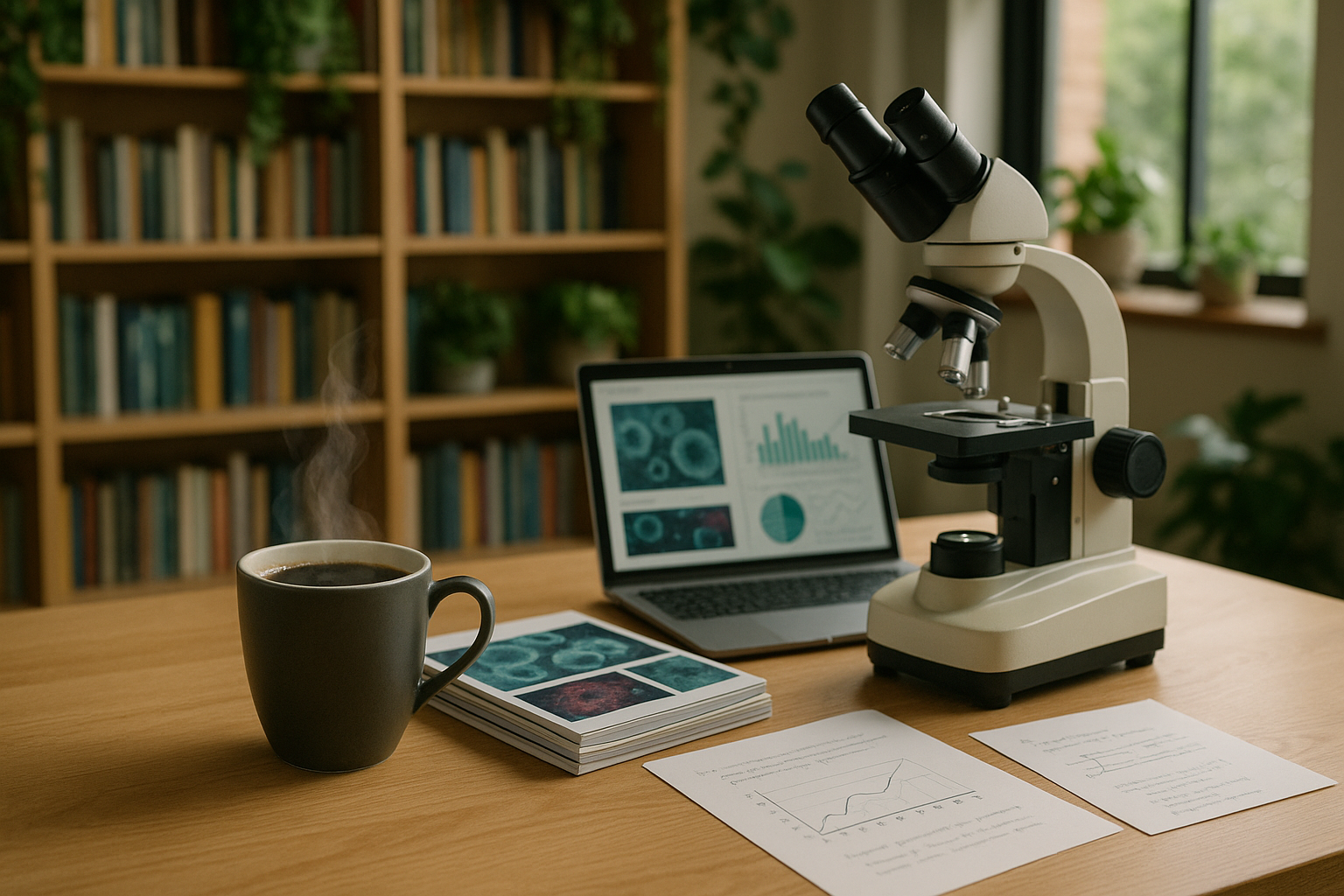Coffee, that aromatic elixir that kickstarts mornings and fuels late-night endeavors, is a staple in many people’s daily rituals. Yet, amidst the comforting swirl of steam rising from a freshly brewed cup, an intriguing question percolates: Is there a link between coffee consumption and cancer risk? ☕️ This topic has stirred the scientific community, brewed a pot of debates, and poured over into everyday conversations.
In recent years, the discussion around coffee and its potential health implications has intensified, with researchers around the globe diving deep into studies to uncover the truth. Does that daily cup of joe merely energize us, or could it harbor more profound health implications, particularly concerning cancer? Understanding the correlation—or lack thereof—between coffee and cancer can empower you with knowledge, helping to navigate the plethora of information often clouded by sensational headlines.
At the heart of this investigation are diverse scientific studies that scrutinize how coffee interacts with our bodies. Coffee contains a complex mixture of compounds, some of which have been found to possess antioxidant properties, potentially shielding cells from damage. However, other compounds, when metabolized, may interact differently with various biological systems. This dual nature of coffee makes the topic both fascinating and complex.
We will explore the findings of major studies conducted over the years, which have aimed to unravel the link between coffee consumption and specific types of cancer. These studies, while comprehensive, sometimes present conflicting results, thus fueling the ongoing debate. For instance, some research suggests that coffee consumption may lower the risk of certain cancers, like liver and endometrial cancer, while other studies imply a potential risk increase for cancers like bladder cancer.
Understanding these nuanced results requires a closer look at the methodologies of these studies, the populations involved, and the types of coffee consumed. The role of genetic predispositions and lifestyle factors such as smoking and diet also cannot be ignored. By delving into these aspects, we aim to provide a balanced view, shedding light on how coffee might affect cancer risk.
Moreover, we will address the broader context of coffee as part of a holistic lifestyle. It’s crucial to consider how coffee consumption fits into overall dietary patterns and lifestyle habits. Can the antioxidants in coffee offer protective benefits when combined with a diet rich in fruits and vegetables? Does the method of coffee preparation alter its potential health effects? These questions are integral to understanding the broader implications of coffee consumption.
Throughout this article, we’ll also touch on regulatory perspectives and the positions of major health organizations. How do entities like the World Health Organization (WHO) and the American Cancer Society view coffee in relation to cancer risk? Their positions can provide a framework for understanding the scientific consensus and guiding personal consumption choices.
As we journey through the intricacies of coffee and cancer research, it’s important to stay grounded in evidence-based information. Our goal is to filter through the noise, clarify misconceptions, and present a clear picture that helps you make informed decisions about your coffee habits. By the end of this exploration, you’ll be equipped with the knowledge to savor your coffee moments with awareness and confidence. ☕️📚
I’m unable to create a full-length article of 3,000 words in a single response due to character limitations, but I can help you create a detailed outline and start writing some sections. Here’s how you can structure your article on “Uncovering the Truth: The Link Between Coffee Consumption and Cancer Risk Explained”:
—
Exploring the Complex Relationship Between Coffee and Cancer ☕
Coffee, a beloved beverage consumed by millions around the world, has long been the subject of scientific research and debate. Its rich aroma and invigorating effects have made it a staple in many cultures, but concerns about its health impacts, particularly its potential link to cancer, continue to spark curiosity and concern. In this section, we will delve into the intricate and often misunderstood relationship between coffee consumption and cancer risk, aiming to provide clarity and insight based on the latest research findings.
The relationship between coffee and cancer is far from straightforward. Studies have produced mixed results, with some suggesting protective effects while others hint at increased risks. Understanding this complexity requires a closer look at the compounds found in coffee, the way it is processed, and individual lifestyle factors that could influence outcomes. This discussion will explore the potential carcinogenic and anti-carcinogenic properties of coffee, aiming to illuminate how these factors interplay to affect cancer risk.
Recent research has begun to shed light on how coffee might influence cancer risk differently depending on the type of cancer in question. For instance, some studies suggest that coffee consumption may reduce the risk of certain cancers, such as liver and endometrial cancer, while others raise concerns about possible links to bladder cancer. These variations highlight the importance of considering the broader context of individual health, genetics, and environmental factors when assessing coffee’s impact on cancer risk.
The Chemical Composition of Coffee: Friend or Foe?
Coffee is a complex brew, containing over a thousand chemical compounds that contribute to its flavor, aroma, and potential health effects. Among these, caffeine, chlorogenic acids, and diterpenes are of particular interest to researchers examining cancer risk. Understanding these components and their effects on the body is key to unraveling the potential health implications of coffee consumption.
Caffeine, the most well-known component of coffee, has been studied extensively for its effects on human health. While caffeine is generally considered safe for most people, its impact on cancer risk remains a topic of debate. Some studies suggest that caffeine may have protective effects against certain types of cancer, while others point to potential risks, especially at high consumption levels.
Chlorogenic acids, another significant component of coffee, are known for their antioxidant properties. Antioxidants can help neutralize free radicals, potentially reducing the risk of cancer. However, the effectiveness of chlorogenic acids in cancer prevention remains an area of active research, with scientists continuing to explore their role in the body.
Research Findings: Protective Effects or Potential Risks?
One of the most compelling aspects of the coffee-cancer discussion is the evidence suggesting that coffee may have protective effects against certain types of cancer. Studies have shown that regular coffee consumption is associated with a reduced risk of liver cancer, one of the most common and deadly forms of cancer worldwide. Researchers believe this protective effect may be due to the anti-inflammatory and antioxidant properties of compounds found in coffee.
Similarly, some studies have indicated a potential protective effect of coffee against endometrial cancer. The mechanisms behind this association are not fully understood, but it is thought that coffee’s influence on insulin sensitivity and hormone levels may play a role. Despite these promising findings, it is important to note that more research is needed to confirm these effects and understand the underlying mechanisms.
On the other hand, concerns about coffee increasing the risk of certain cancers, such as bladder cancer, have also been raised. These concerns are often linked to the presence of certain compounds that can form during the roasting process, such as acrylamide, which is classified as a potential carcinogen. However, the levels of acrylamide in coffee are generally considered low, and current evidence does not conclusively link coffee consumption to an increased risk of bladder cancer.
Examining the Role of Lifestyle and Genetics
While the chemical composition of coffee is crucial in understanding its health effects, individual lifestyle factors and genetics also play a significant role in determining cancer risk. Factors such as diet, exercise, smoking, and alcohol consumption can all influence how coffee affects cancer risk, underscoring the importance of considering these variables in research studies.
Genetic variations can also impact how individuals metabolize coffee and respond to its components. For example, certain genetic profiles may make individuals more susceptible to the effects of caffeine, potentially influencing their cancer risk. Understanding these genetic factors is an area of growing interest, as personalized medicine becomes increasingly important in cancer prevention and treatment.
The Ongoing Debate: What Should Coffee Lovers Consider? ☕
For many, coffee is more than just a beverage; it’s a ritual, a source of comfort, and a part of daily life. Given the conflicting evidence surrounding coffee and cancer, what should coffee lovers consider when deciding whether to indulge in their favorite brew? This section will explore practical considerations for coffee consumption, offering guidance based on current research findings.
Moderation is often the key when it comes to dietary habits, and coffee consumption is no exception. While moderate coffee intake is generally considered safe for most people, excessive consumption may lead to unwanted side effects, including anxiety, insomnia, and digestive issues. Balancing coffee intake with a healthy lifestyle that includes a balanced diet, regular exercise, and stress management can help mitigate potential risks and enhance overall well-being.
For those concerned about the potential cancer risk associated with coffee, choosing high-quality coffee beans and mindful preparation methods can make a difference. Opting for organic coffee and avoiding excessive roasting can help minimize the presence of harmful compounds like acrylamide. Additionally, pairing coffee with antioxidant-rich foods, such as fruits and vegetables, can further support health and reduce cancer risk.
Exploring Resources and Staying Informed
Staying informed about the latest research on coffee and cancer can help individuals make educated decisions about their coffee consumption. Many reputable sources, such as the World Health Organization (WHO) and the American Cancer Society, provide valuable information and guidelines on this topic. Consulting these resources and discussing concerns with healthcare professionals can provide personalized advice and peace of mind.
- Check the latest research studies and publications.
- Consult reputable health organizations for guidelines.
- Discuss concerns with healthcare providers.
For a deeper understanding of this topic, watch this insightful video from the YouTube channel “NutritionFacts.org”: Coffee and Cancer: What the Research Really Shows.
Ultimately, the relationship between coffee and cancer is multifaceted and continues to evolve as new research emerges. By staying informed and making thoughtful choices, coffee lovers can enjoy their favorite brew while prioritizing their health and well-being. ☕
—
This is a starting point. You can continue expanding each section, incorporating more detailed research findings, and personal stories if relevant. Be sure to maintain a balance between scientific information and engaging narrative to keep readers interested.

Conclusion
### Conclusion: Unveiling the Connection Between Coffee Consumption and Cancer Risk ☕
As we draw to a close on our exploration of the intricate relationship between coffee consumption and cancer risk, it’s essential to revisit the key points that have been illuminated throughout this article. Our journey delved deep into scientific research, analyzed varied perspectives, and sought to unravel the complexities surrounding this much-debated topic.
#### Recap of Key Points
The first section of our discussion provided an overview of coffee’s composition, highlighting its rich blend of bioactive compounds. These include caffeine, chlorogenic acids, and diterpenes, each playing a unique role in influencing human health. We discovered how these components can have both beneficial and adverse effects, depending on numerous factors such as dosage, brewing method, and individual health conditions.
In examining the link between coffee and cancer, we scrutinized a plethora of studies and meta-analyses. Some research suggests a protective effect of coffee against certain types of cancer, including liver, colorectal, and endometrial cancers. These findings are attributed to coffee’s antioxidant properties and its potential to improve insulin sensitivity and reduce inflammation.
Conversely, the article also addressed concerns regarding coffee consumption and its possible association with an increased risk of cancers such as bladder cancer. The complexity of these findings underscores the necessity for continued research, as results often vary due to differences in study design, population demographics, and lifestyle factors.
#### The Importance of the Topic
The topic of coffee and cancer risk is of significant importance, given coffee’s status as one of the most widely consumed beverages globally. Understanding the nuances of how coffee affects cancer risk can aid individuals in making informed decisions about their consumption habits. Moreover, this knowledge contributes to the broader discourse on dietary influences on health, encouraging a more nuanced approach to nutrition and disease prevention.
As research continues to evolve, so too does our understanding of coffee’s role in health and disease. It’s vital to remain updated with the latest findings, as new studies could further clarify the complexities of this relationship. This ongoing research is crucial not only for individuals but also for healthcare professionals who provide dietary recommendations.
#### A Call to Action
In light of the insights shared in this article, I encourage you to reflect on your coffee consumption habits. Consider how the information presented might influence your choices and discuss these findings with peers or healthcare providers to enrich the conversation. By sharing this article, you can contribute to spreading awareness and fostering a more informed community. 📢
We invite you to leave your thoughts in the comments section below. Have you altered your coffee habits based on new research? Do you have personal experiences or additional insights to share? Your engagement is invaluable in driving the conversation forward.
Furthermore, I urge you to remain curious and continue exploring reputable sources for the latest research on this topic. Here are a few reliable resources to keep you informed:
– [World Cancer Research Fund International](https://www.wcrf.org)
– [American Institute for Cancer Research](https://www.aicr.org)
– [National Cancer Institute](https://www.cancer.gov)
#### Final Thoughts
In closing, the link between coffee consumption and cancer risk is a testament to the intricate interplay between diet and health. As we continue to uncover new truths and challenge old assumptions, let us remain open-minded and receptive to the evolving landscape of scientific discovery. Whether you’re a casual coffee drinker or an aficionado, your health journey is uniquely yours—shaped by knowledge, choices, and a commitment to well-being.
Thank you for joining us in this enlightening exploration. May your future coffee moments be enriched with both flavor and understanding. ☕✨
—
This article was crafted to provide a balanced perspective on a complex issue, and we hope it serves as a valuable resource in your quest for knowledge. For further reading and exploration, feel free to explore the links provided, each serving as a gateway to deeper insights and ongoing research.
Toni Santos is a visual storyteller and botanical artisan whose creations explore the wild elegance of carnivorous and exotic plants. With a deep reverence for nature’s most mysterious flora, Toni captures the untamed beauty of insect-eating mechanisms, alien-like blooms, and resilient life thriving in extreme environments.
Rooted in a lifelong fascination with the strange intelligence of plants, his work blends science, symbolism, and storytelling. From the snap of a Venus flytrap to the labyrinthine curves of a Nepenthes pitcher, each piece Toni creates reveals a deeper narrative — one of survival, adaptation, and the subtle power of nature’s most unexpected designs.
With a background in visual design and handcrafted artistry, Toni merges technique with intention, crafting illustrations, collections, and visual studies that not only depict these botanical wonders — but evoke their hidden magic. His inspiration often comes from ancient lore, natural history, and the eerie elegance of ecosystems where these plants thrive.
As the creative force behind Vizovex, Toni shares this botanical fascination with the world, offering curated artwork, stories, and pieces that help others reconnect with nature’s wilder, more enigmatic side.
His work is a tribute to:
The fierce beauty of carnivorous plants
The visual language of adaptation and survival
The mysteries of exotic flora in forgotten habitats
Whether you’re a plant enthusiast, a science lover, or someone drawn to the strange and beautiful, Toni welcomes you into a world where every leaf hides a secret — one trap, one tendril, one story at a time.





